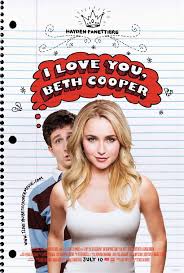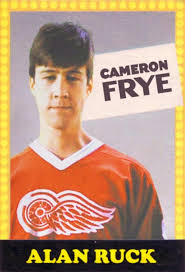

Over the past few days, while I have been on break, I have been mulling around the blogosphere looking at all of the things that have been going on. I got completely caught up on reading everything in my Google Reader and even engaged with David Jakes, Gary Stager and others over the validity and the content of a GTA designed for Administrators. I know it has been awhile since I have posted anything here, but I want to post more as my time permits.
 This post may not be something that my colleagues in education will necessarily agree with, but in the words of Kathy Sierra, its time to "get out of default mode." I am seriously thinking of using the slogan when I present on the last day of the CLHS Statewide Conference in Monterey, CA on January 17, 2010.
This post may not be something that my colleagues in education will necessarily agree with, but in the words of Kathy Sierra, its time to "get out of default mode." I am seriously thinking of using the slogan when I present on the last day of the CLHS Statewide Conference in Monterey, CA on January 17, 2010.So, here we go! We have no excuse any more. Teachers need to get out of default mode. I am tired of teacher's complaining that they cannot assign any Internet based assignments because students do not have access at home. At the present time, any student that does not have access to the Internet does not have it because they have chosen not to have access. This is despite the economic situation of their families.
Currently, Walmart is advertizing an e-Machine's Netbook for $228 and have an Acer Netbook for $298. The prices are so low that the major cell phone services will give you a free or low cost netbook in exchange for a two year service agreement. (AT&T and Verizon)
The locations offering free Wifi is increasing by the day. McDonald's (12,804 locations in the US) just announced that they will have free Internet access starting during January 2010. Starbucks (11,068 locations in the US) has offered 2 hours free per day, in exchange for registering your card and using the card once a month. Barnes and Noble has 777 locations and Borders Books has 517 locations offering free Wifi. Panera Bread has 1,272 locations in the US offering free Wifi. Add to this number locations at Public Libraries, Apple Stores, Schlotsky's Deli, Daily Grind and the variety of independent businesses offering free Wifi, there is simply no excuse any more. In my local community, there are two cities that have municipal Wifi networks. (Mountain View and East Palo Alto)
If there are still barriers, the one technology that people in the lower socio-economic groups have adopted in large numbers has been the cell phone. Over the last two years, 2007-2009, the number of smart phones (iPhones, Droids and BlackBerry's) has increased by 20% per year and will account for close to 150 million cell phones in the US by 2013. Will Richardson's post earlier this month about allowing students to use their own connection, is borne out by these numbers.
So, if there are those teachers in the profession who still want to hang on to the argument that they will not assign students work that necessitates students using Internet resources, please send them my way. I have a few resources I would like to share with them.






